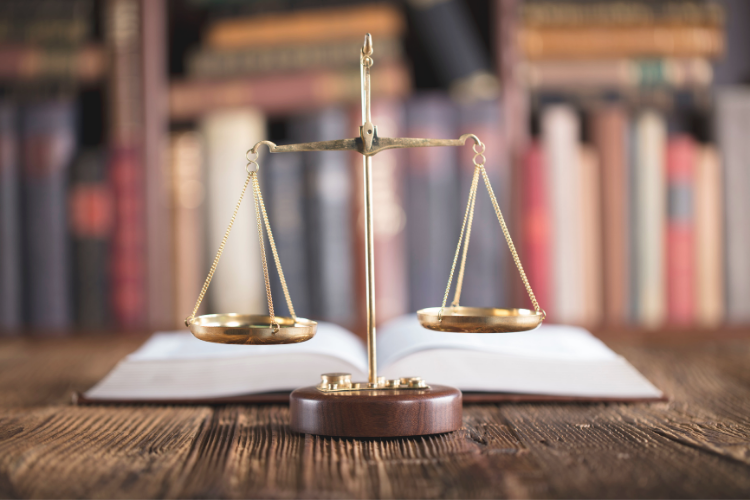Dallas, Tx, USA, 04/29/2021 / Broden Mickelsen /
It’s a common misconception that once a person has been charged with a crime, they can never again be prosecuted by the government for an offense arising out of the same set of circumstances.
Most people are familiar with the term “double jeopardy,” which is a right under the Fifth Amendment that states in relevant part that “no person shall…be subject for the same offense to be twice put in jeopardy of life or limb…”
However, people sometimes misunderstand the meaning of double jeopardy and how it applies. It’s a common misconception that once a person has been charged with a crime, they can never again be prosecuted by the government for an offense arising out of the same set of circumstances.
While it’s correct that the state can’t bring another prosecution against an individual after they have been acquitted for that crime, double jeopardy doesn’t prevent the federal government from pursuing its own prosecution against that individual if the federal government alleges the person violated federal law.
Double Jeopardy and Dual Sovereignty
It’s important to understand that double jeopardy is limited to a single jurisdiction for the same crime. Specifically, this means that a state can’t pursue another prosecution against someone for the same offense after that person has been acquitted in state court.
Similarly, the federal government can’t pursue a second or subsequent prosecution against an individual for the same crime after that person has been acquitted in federal court.
However, an individual can face prosecution for the same offense in both state and federal court. This is because “dual sovereignty” holds that the state and the federal government each have jurisdiction over their own laws and statutes.
For example, if an individual is accused of murder inside a state, that state can pursue a murder charge against that person. If the individual is accused of murdering a federal agent, the federal government can also pursue a prosecution against that person. There are other circumstances in which the federal government may pursue its own prosecution. For example, the federal government has jurisdiction over the case if the murder occurred on federal property or the crime involved the crossing of state lines.
An individual can face prosecution for state charges and then face prosecution for an offense arising out of the same set of circumstances in the federal judicial system. Furthermore, if the person is convicted in both systems, they can face sentencing in both systems.
Furthermore, being acquitted at one level doesn’t mean an individual can’t be convicted at another level. For example, someone who is acquitted in state court may still be convicted in federal court under federal charges.
The U.S. Supreme Court has handed down a number of cases holding that dual sovereignty allows the state and the federal government to pursue separate prosecutions for the same criminal offenses. The Court has also decided numerous cases that show that the concept of double jeopardy is a great deal more nuanced than many people believe.
-
In Gamble v. United States (2019), the court in a 7-2 decision held that the dual sovereignty doctrine means that an individual can be prosecuted by two sovereign governments without violating the double jeopardy clause of the Fifth Amendment. Justice Ginsburg dissented, stated that “the liberty-denying potential of successive prosecutions, when Federal and State Governments prosecute in tandem, is the same as it is when either prosecutes twice.”
-
In Abbate v. United States (1959) the Court held that the double jeopardy clause is inapplicable to a federal prosecution following a state prosecution for the same crime.
-
In Blueford v. Arkansas (2012) the Supreme Court held that the state of Arkansas did not violate a defendant’s right against double jeopardy when the court dismissed his first murder trial after the jury failed to agree on a conviction charge.
-
In Bobby v. Bies (2009) the Court held that the double jeopardy clause didn’t preclude the court from relitigating a claim of mental incapacity just because the accused was not acquitted at trial.
-
In Bravo-Fernandez v. United States (2016) the Court held that the double jeopardy cause does not prohibit a defendant’s retrial in a case where the jury returns an inconsistent verdict of conviction where the conviction is later vacated due to a separate legal mistake.
Contact a Federal Criminal Defense Lawyer If You Are Facing Federal Charges
If you have been charged with a crime in federal court, you should discuss your case with an experienced federal criminal defense lawyer. Federal charges are serious, and you can face serious penalties if you are convicted. Checkout selecting a criminal defense attorney by Clint Broden a Dallas based federal criminal defense lawyer.
Media Contact: Dallas Criminal Defense Attorney Mick Mickelsen
>> Sources:
|
Telephone: Defense Lawyers Broden & Mickelsen, LLP |
Broden, Mickelsen Federal & Texas Criminal Defense Lawyers
https://www.brodenmickelsen.com
Check out Broden, Mickelsen, LLP on Issuu and Business Net Texas.
***ATTORNEY ADVERTISING***
Prior results cannot and do not guarantee or predict a similar outcome with respect to any future case.
Source: SubmitMyPR
Release ID: 17760
Content Disclaimer:
The above review statements are those of the sponsor (Source of content) and do not necessarily reflect the official policy, position or views of the content publisher. The content distribution company is therefore not responsible for the content and its authenticity and legal standing of the above subject matter. Each individual is required to exercise its content when making a purchase from the above offer. The information does not constitute advice or an offer to buy. Any purchase made from the above press release is made at your own risk. Editorial merit of this content is subject to news publisher and its downstream partners. Consult an expert advisor/health and professional advisor before any such purchase. Any purchase made from this link is subject to the final terms and conditions of the website’s selling as mentioned in the above as source. The content publisher and its downstream distribution partners do not take any responsibility directly or indirectly. If you have any complaints or copyright issues related to this article, kindly contact the company this news is about.
DISCLAIMER of Liability. IN NO EVENT SHALL OUR PR COMPANY BE LIABLE OR RESPONSIBLE TO YOU OR ANY OTHER PERSON FOR ANY DIRECT, INDIRECT, INCIDENTAL, CONSEQUENTIAL, SPECIAL, OR EXEMPLARY DAMAGES OF ANY KIND, INCLUDING WITHOUT LIMITATION, LOST PROFITS OR LOST OPPORTUNITIES, EVEN IF ADVISED OF THE POSSIBILITY OF SUCH DAMAGES IN ADVANCE AND REGARDLESS OF THE CAUSE OF ACTION UPON WHICH ANY SUCH CLAIM IS BASED, INCLUDING, WITHOUT LIMITATION, ANY CLAIM ARISING OUT OF OR IN CONNECTION WITH ANY OF THE CONTENT, INCLUDING, WITHOUT LIMITATION, AUDIO, PHOTOGRAPHS, AND VIDEOS, OR OF THE ACCURACY, RELIABILITY, OR LEGALITY OF ANY STATEMENT MADE IN OR OMITTED FROM ANY advertisement, sponsorship, endorsement, testimonial, opinion, or other product-related or service-related statement or review appearing in the Websites or in ANY post or article distributed via the Websites.








